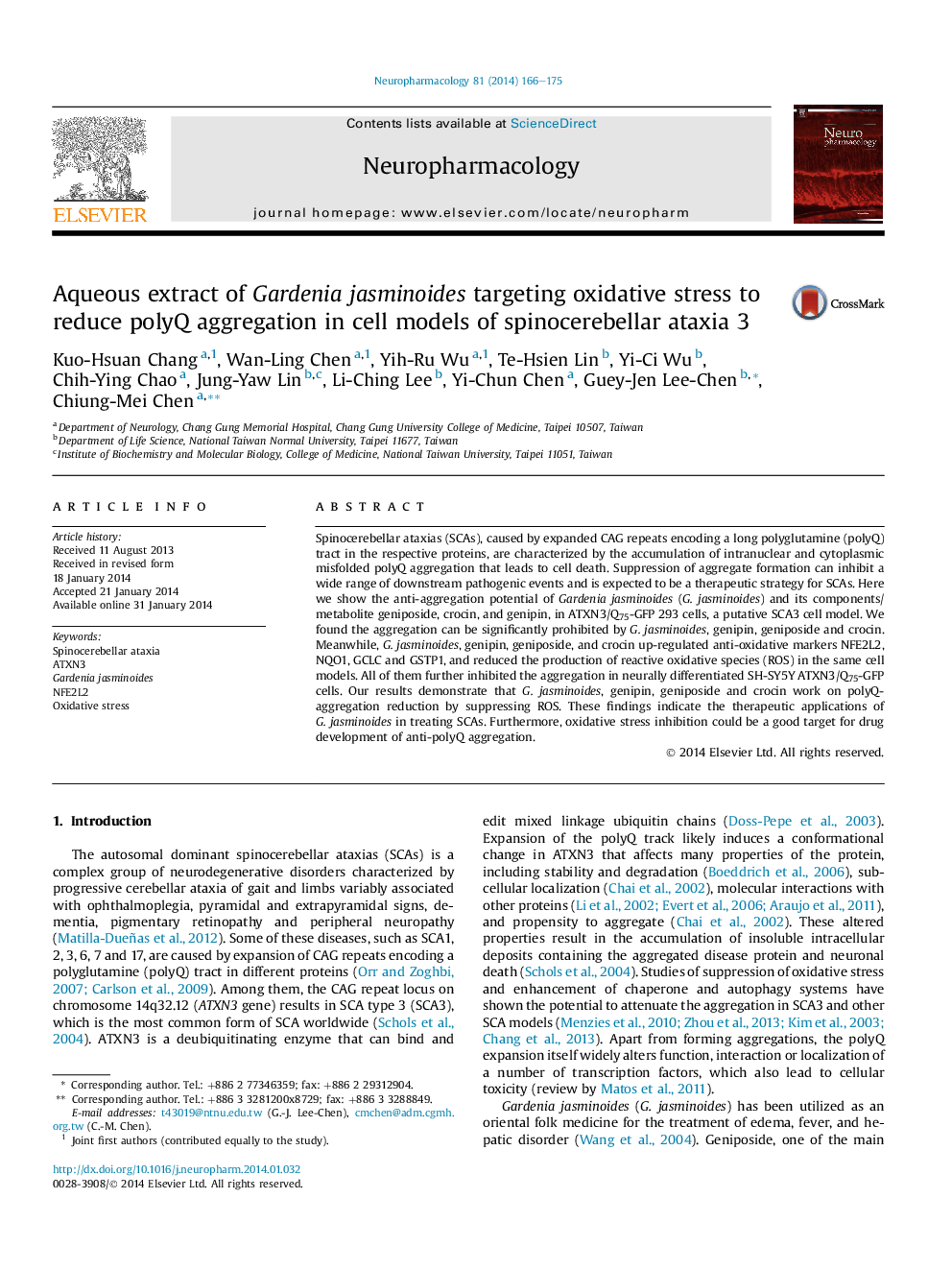| کد مقاله | کد نشریه | سال انتشار | مقاله انگلیسی | نسخه تمام متن |
|---|---|---|---|---|
| 2493242 | 1556633 | 2014 | 10 صفحه PDF | دانلود رایگان |

• We report anti-aggregation potential of Gardenia jasminoides and components in 293/SH-SY5Y SCA3 cells.
• G. jasminoides, geniposide, crocin up-regulate anti-oxidative markers and suppress ROS.
• Anti-oxidation may serve as a potential therapeutic strategy for SCA.
Spinocerebellar ataxias (SCAs), caused by expanded CAG repeats encoding a long polyglutamine (polyQ) tract in the respective proteins, are characterized by the accumulation of intranuclear and cytoplasmic misfolded polyQ aggregation that leads to cell death. Suppression of aggregate formation can inhibit a wide range of downstream pathogenic events and is expected to be a therapeutic strategy for SCAs. Here we show the anti-aggregation potential of Gardenia jasminoides (G. jasminoides) and its components/metabolite geniposide, crocin, and genipin, in ATXN3/Q75-GFP 293 cells, a putative SCA3 cell model. We found the aggregation can be significantly prohibited by G. jasminoides, genipin, geniposide and crocin. Meanwhile, G. jasminoides, genipin, geniposide, and crocin up-regulated anti-oxidative markers NFE2L2, NQO1, GCLC and GSTP1, and reduced the production of reactive oxidative species (ROS) in the same cell models. All of them further inhibited the aggregation in neurally differentiated SH-SY5Y ATXN3/Q75-GFP cells. Our results demonstrate that G. jasminoides, genipin, geniposide and crocin work on polyQ-aggregation reduction by suppressing ROS. These findings indicate the therapeutic applications of G. jasminoides in treating SCAs. Furthermore, oxidative stress inhibition could be a good target for drug development of anti-polyQ aggregation.
Journal: Neuropharmacology - Volume 81, June 2014, Pages 166–175